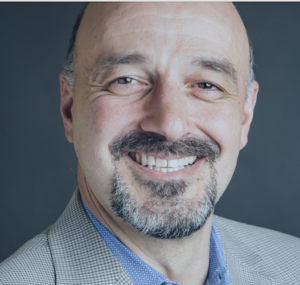 For over 40 years, Search for Common Ground has been building trust around the world, opening opportunities for collaboration between communities, and creating breakthroughs for peace. Whether global in nature, such as poverty, hunger or the environment, or closer to home, such as family or community relations, we face daily challenges to our abilities to deal with conflict constructively. Using everything from traditional diplomacy and mediation to video games and virtual exchange, we work one step at a time to change the nature of conflict – from a destructive force to a constructive one.
For over 40 years, Search for Common Ground has been building trust around the world, opening opportunities for collaboration between communities, and creating breakthroughs for peace. Whether global in nature, such as poverty, hunger or the environment, or closer to home, such as family or community relations, we face daily challenges to our abilities to deal with conflict constructively. Using everything from traditional diplomacy and mediation to video games and virtual exchange, we work one step at a time to change the nature of conflict – from a destructive force to a constructive one.
Stepping back from conflict enables and requires trust and provides the foundation for collaboration to solve complex problems. It allows people to look past differences, have difficult conversations, take shared risks, find common ground, and invest in pathways towards a shared future. Search for Common Ground CEO Shamil Idriss will discuss the organization’s principes, techniques and accomplishments—perhaps igniting a recognition in us for other arenas in which polarization can be bridged.
Shamil Idriss is the Chief Executive Officer of Search for Common Ground, the world’s largest dedicated peacebuilding organization. In his current capacity as CEO, and in his previous capacities as President, Chief Operating Officer, and Burundi Country Director, Shamil has led Search’s efforts to end violent conflict in more than 35 countries globally, including some of the most devastating conflict zones in the Middle East and Africa.
Shamil was appointed in 2005 by United Nations Secretary-General Kofi Annan as Deputy Director of the UN Alliance of Civilizations. In this role, he supported high-level political and religious leaders in developing policy recommendations and action plans to improve cross-cultural relations between Western and Muslim-majority countries, before, during, and after the Arab Spring revolutions. From 2004-2005, Shamil worked with the World Economic Forum to establish the Forum’s Council of 100 Leaders.
Shamil is also a pioneer in the use of interactive media technologies for cross-cultural education and collaboration. In 2008-2014, as the CEO of Soliya, he led a coalition to create a market for virtual exchange through partnerships with public and private sector leaders across the United States, the Arab League, and the European Union. This led to the establishment of the J. Christopher Stevens Virtual Exchange Initiative announced by President Barack Obama in February 2015, and the subsequent announcement by the European Commission of their dedicated fund to expand virtual exchange in 2017.
A graduate of Swarthmore College with degrees in Economics and Philosophy.
Summary
Shamil Idriss, CEO of Search for Common Ground, discussed global polarization and conflict resolution through trust-building and understanding.
His organization’s mission is to transform the way the world deals with conflict, away from adversarial approaches and toward cooperative solutions. They believe that conflict is inevitable but violence is not. Conflict is a natural result of human diversity. When we deal with conflict adversarially, it generates polarization and violence. When we collaborate, conflict catalyzes positive change. Their vision is a world where cooperation is the norm—where differences stimulate social progress, rather than precipitate violence.
Global Polarization Landscape
Idriss highlighted that the world has been experiencing unprecedented levels of political polarization since 1900, with societies increasingly viewing opposing groups as existential threats. This polarization is not just a political phenomenon but a global challenge that can potentially lead to destructive conflicts.
Conflict as a Constructive Force
Conflict is natural and inevitable, but violence is not. Idriss uses a powerful metaphor comparing conflict to friction – which can be destructive like an uncontrolled fire or generative as human control of fire has allowed human development and innovation. The key in keeping the flames under control is managing conflict through trust and understanding.
Five Vital Signs of a Healthy Society
Inspired by medical vital signs, Idriss and his organization have developed five critical indicators to assess a society’s resilience.
- Intercommunal Trust: The level of trust across different racial, political, religious, and ideological lines.
- Institutional Trust: Citizens’ trust in governing institutions, media, and service providers.
- Violence Levels: The degree of physical insecurity and potential for escalating violence.
- Agency: People’s sense of ability to improve their circumstances.
- Resources: Understanding what is prioritized in the budget and what is ignored.
Diversity and Trust
Idriss emphasizes that diverse teams can be both the most and least effective, depending on trust. High-performing diverse teams outperform homogeneous groups, but building trust takes more time and effort across different backgrounds. The key is creating an environment where diverse perspectives can be shared openly and respectfully.
Practical Peacebuilding Approach
Search for Common Ground works in 36 countries, employing 850 full-time staff. Their approach includes:
- Facilitating dialogue between conflicting groups
- Creating collaborative platforms
- Establishing cross-cultural educational initiatives
Notable Achievements
- Facilitated meetings between Israeli and Jordanian generals that influenced the 1994 Peace Accord
- Created bilingual, multi-ethnic schools in Macedonia to bridge ethnic divides
- Developed a global framework for understanding and mitigating societal tensions
The organization’s core philosophy is transforming conflict from a destructive force to a constructive one, emphasizing trust-building as the fundamental mechanism for positive change.
Slides: Darien Mens Association – Trends in Global Conflict & Cooperation
